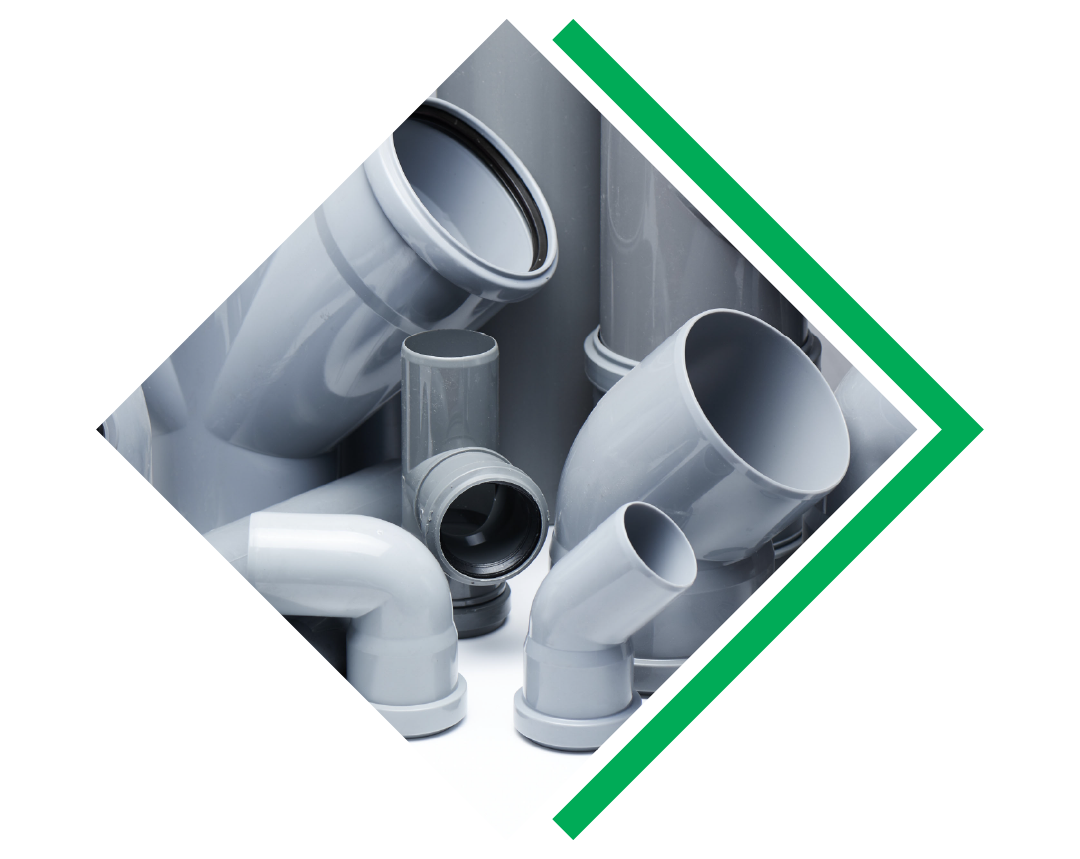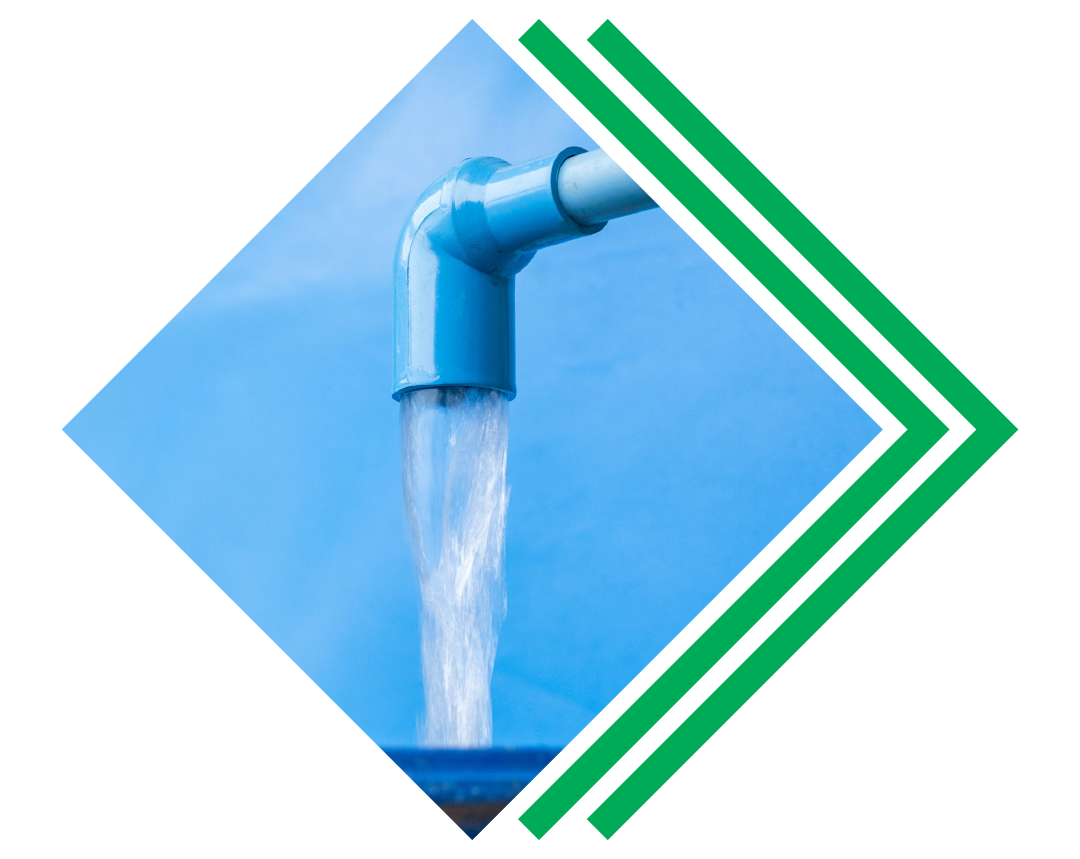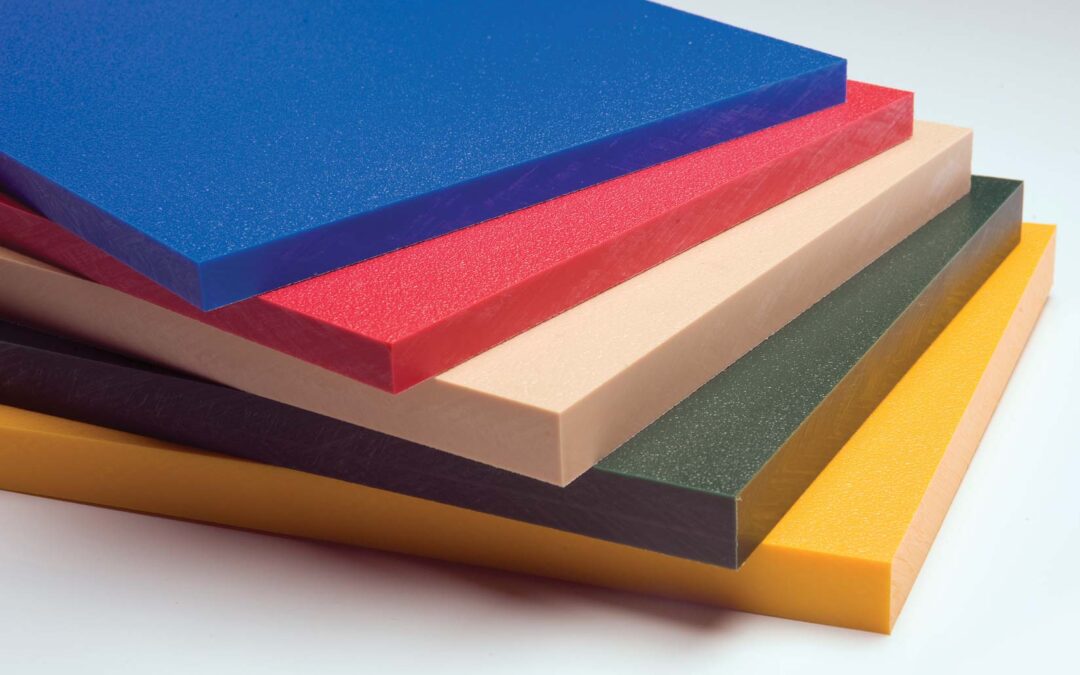Plastic Products for Water & Wastewater Applications
Products for Flow, Resistance, & Reliability
About Water & Wastewater Industry Plastics
Performance plastics are safe, durable, long-lasting, light weight, and low maintenance, making them a great solution in water and wastewater treatment plants. They are used for pipes, tanks, and other equipment because they can withstand extreme temperatures and pressures without wear or failure. Many plastics offer excellent chemical resistance and will not corrode or break down when constantly exposed to water or other liquids, which makes them an ideal material for this type of application.

Materials That Allow for Cost Reducing Free Flow
Plastics can solve many problems caused by traditional materials, making systems more efficient and environmentally sustainable. Since HDPE pipe weighs 20% of its concrete counterparts, it requires far fewer truckloads to transport, cutting fuel emissions and drastically decreasing expensive freight costs. The ultra smooth surface of PVC pipe allows liquid to flow freely, reducing pumping costs. And because plastic doesn’t corrode and has leak free joints, plastic piping can prevent costly and wasteful water leaks or pipe failures common with other materials.
Versatile Products Engineered for Water Management
While PVC is the most well-known plastic used for pipes, pipe grade HDPE such as Polystone G Pipe Grade by Röchling offers additional flexibility and durability. Polypropylene-C copolymer by SIMONA® is used in tanks throughout many wastewater treatment plants because of its versality and excellent chemical resistance. Polymershapes offers an extensive inventory of plastics from these and other leading manufacturers like Primex and Polymer Industries that are engineered to excel in your water or wastewater application. Consult our team of material experts to discuss how the right plastic can improve efficiency and reduce leaks to preserve this precious resource.


Versatile Products Engineered for Water Management
While PVC is the most well-known plastic used for pipes, pipe grade HDPE such as Polystone G Pipe Grade by Röchling offers additional flexibility and durability. Polypropylene-C copolymer by SIMONA® is used in tanks throughout many wastewater treatment plants because of its versality and excellent chemical resistance. Polymershapes offers an extensive inventory of plastics from these and other leading manufacturers like Primex and Polymer Industries that are engineered to excel in your water or wastewater application. Consult our team of material experts to discuss how the right plastic can improve efficiency and reduce leaks to preserve this precious resource.
Features & Benefits
Lightweight
•Easy to Install
•Corrosion & Chemical Resistant
•Leak Reduction
•High Flexibility
•Weather Resistant
•Impact Resistant
•Noise Reduction
•Recyclable
Lightweight
Reduces freight costs and eases onsite installation.
Easy to Install
Simple to weld, bond, or mechanically fasten.
Corrosion & Chemical Resistant
Performs reliably in caustic or wet environments.
Leak Reduction
Precision fittings reduce material failure and water loss.
High Flexibility
Eliminates need for elbows or specialty connectors.
Weather Resistant
UV-resistant options available for exposed applications.
Impact Resistant
Resists damage from movement or equipment contact.
Noise Reduction
Operates more quietly than metal alternatives.
Recyclable
Options available in recycled and recyclable grades.
Applications
High Purity Fluid Transport
When fluid purity is critical, polytetrafluoroethylene (PTFE) is a high-performance solution specifically engineered for such demanding applications. It retains its chemical inertness even under pressure or at high temperatures, making it the preferred material for storing, monitoring, and transporting ultra-high purity fluids.
Irrigation Systems
Polyvinyl chloride (PVC) is the most common type of plastic piping because it doesn’t corrode or degrade during constant water exposure, and its smooth surface promotes water flow. It is readily available in many sizes for easy installation. High-density polyethylene (HDPE) is gaining popularity in irrigation applications because of its higher flexibility and lower cost, and its improved UV resistance for aboveground systems.
Plumbing & Pipes
Starting in the 1950’s, PVC began replacing metal pipes in many residential and industrial plumbing and sewer applications. PVC is cost-effective, easy to install, and doesn’t corrode, leading to fewer leaks and burst pipes. Chlorinated polyvinyl chloride (CPVC) is a more recent advancement with improved heat resistance, making it preferable for hot water lines.
Potable Water Systems
Drinking water is subject to many state and federal regulations to ensure that it’s safe for human consumption. Water treatment is used to bring chemical and biological contaminants to acceptable levels. HDPE is the go-to material for most low-pressure applications involving the transport and treatment of potable water because it’s a reliable, long-lasting, and low maintenance solution that also provides excellent chemical resistance and meets all applicable standards. For high-pressure applications, such as main lines, PVC may be preferred.
Valve & Pump Components
Acrylonitrile butadiene styrene (ABS) is often used for pump components and valves because it is strong, impact resistant, and able to withstand regular blunt-force trauma, leading to reliable pump performance even in rough environments. It’s also resistant to most chemicals that might be used in water or wastewater treatment.
Wastewater Treatment
Materials used in wastewater treatment applications require strong chemical resistance, a low coefficient of friction, and long-lasting performance despite constant exposure to liquids. Acetal and oil-filled nylon are used throughout wastewater treatment plants in conveyors, compactors, grinders, and presses because of their bearing and wear performance. When it comes to fluid handling, HDPE piping is often selected for its strength, durability, and chemical resistance, although CPVC may be chosen in some situations. Ultra-high molecular weight polyethylene (UHMW-PE) is often used for treatment screens and a variety of wear components such as chain guides because of its excellent impact and abrasion resistance.
Products for Water & Wastewater Applications

ECTFE (Ethylene Chlorotrifluoroethylene)
ECTFE (ethylene chlorotrifluoroethylene) offers an excellent combination of properties for chemical and elevated temperature applications. Often used in the semiconductor industry, and cleanroom equipment, ECTFE is corrosion and chemical resistant, with flame resistant properties.

High Density Polyethylene (HDPE)
HDPE (High Density Polyethylene), part of the polyolefin family of materials, is a semi-crystalline thermoplastic material, with a continuous use temperature range of -50° F (-46° C) to 180° F (82° C).
Have a Project? Get in Touch Today!
Our materials experts will help identify the right solution for your application, put together a quote and a detailed timeline.
Stay Informed with Our Newsletter
Be the first to see our latest promotions, new materials and valuable informative content by signing up for our newsletter.

